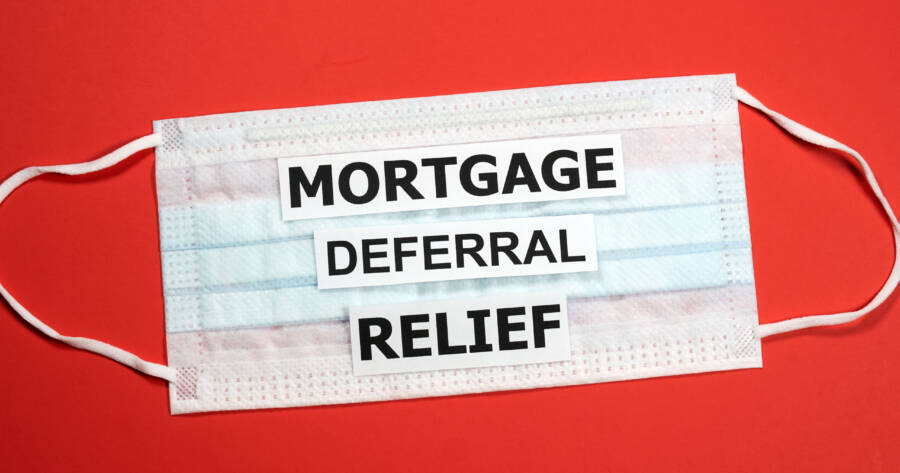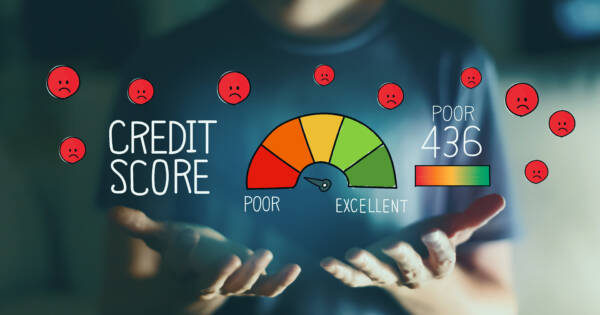In the wake of a global economic shutdown, many of you probably faced financial difficulties. In an attempt to weather the storm, many creditors offered some sort of relief. If you pay a mortgage or a car payment, you may have been offered a deferral plan. (Or had the option to request one). In short, these plans allowed you to skip payments for now. Those payments would typically be added back on to the end of the loan period, extending it slightly. Depending on the terms, you might also be on the hook for a bit of extra interest.
However, the real selling point of these deferral programs were the elimination of late fees or missed payment penalties. There was also a promise that your credit score would not be affected in any way. Unfortunately, many of you are now seeing negative repercussions from these deferrals. Finance blogs all over the internet are ripe with stories of falling credit scores, missed payment penalties, and “forgiven” payments going into collections.
What Can You Really Do About It?
Let’s start with the good news. You do have some options, many of them thanks to the CARES Act. That legislation was passed in April 2020 to help Americans cope with financial stresses of quarantine orders. According to the CARES Act, your lender is not allowed to report you for missed payments under a deferral plan. That’s assuming your account wasn’t already delinquent.
However, financial institutions around the country are overwhelmed right now. Between a reduction in their workforce and an increase in phone calls from customers, mistakes are bound to happen. Just because the CARES Act says your lender can’t ding your credit report doesn’t mean their systems didn’t already do it automatically. They had little time to react properly to the new rules.
Don’t Get Mad
We know it’s frustrating, but try to stay calm and composed. You can correct things, but it’s going to take some time and a lot of patience. Don’t confuse “patience” with “waiting for the problem to fix itself” though. It definitely won’t. You need to be proactive.
The first thing you need to do is contact your lender. Whether it’s a personal loan, a mortgage, or a car note, get in touch with someone from the lending company. You need to get clear answers on the following questions.
- Were my payments successfully deferred as requested?
- Did you report my payments as late or delinquent, either manually or automatically?
- Will you contact the credit bureaus to correct those mistakes?
- How long will it take for the mistakes to be removed from my credit report?
Make sure you receive a copy of any relevant paperwork too. In fact, you can (and should) request written confirmation from your lender that your accounts are indeed deferred and not delinquent. You may need it to prove to the credit bureaus that a mistake was actually made. Speaking of the credit bureaus, they are your next phone call.
Report Errors Yourself
Don’t wait for your lender to contact the credit bureaus on your behalf. Call them as soon as you notice any mistake. In the United States, they are TransUnion, Equifax, and Experian. The sooner you inform them of an error on your credit report, the sooner they can work on fixing it. If you have documented proof from your lender, even better. A written deferral agreement or confirmation that your account is not delinquent will greatly help.
Know What You’re Agreeing To
While this advice won’t necessarily help you after the fact, it’s still an important reminder. A lot of the Payment Deferral plans aren’t as attractive as they first seem. To that end, you need to make sure you fully understand the terms before you agree to any of them. Some companies, for example, were willing to forego three months worth of mortgage payments. However, the terms dictated that you would owe all the missed payments in one large amount at the end of 90 days. That’s not very helpful if you lost your job due to COVID-19. Other deferral programs continue to charge interest or attempt to make up the missed revenue somewhere on the back end of the loan.
However, that doesn’t mean deferral programs can’t be helpful. For example, you could obtain a six-month deferral on your mortgage that saves you $5,000 in payments. However, the interest accumulated in that six months will still be tacked back on. So when it comes time to renew your mortgage, you may find that there’s an extra $2,500 in principal. While you won’t exactly get six months of payment free living, there’s still some relief there if you”re struggling.
The Last Word
Above all else, try not to take things personally. It’s extremely unlikely that your lender is personally trying to make your life difficult by reporting your deferred payments as “missed” or your accounts as “delinquent.” It’s much more likely that a reporting error was made, since companies are bogged down with a huge number of customer service requests at the moment.
The good news is that the law is on your side. The CARES Act ensures that you can’t be hit with financial punishments for deferring your loan payments. While it always pays to be calm and rational as you sort through the mess of red tape, it’s important to stay persistent. These mistakes rarely go away on their own. Always remember that no one else will advocate for you better than you can for yourself. So arm yourself with all the proof you can, charge your phone, and get ready to spend a few hours on hold. It will be worth it in the end.
 Shutterstock
Shutterstock







